Capcom accused of infringing artist's copyright in Resident Evil games
- Published
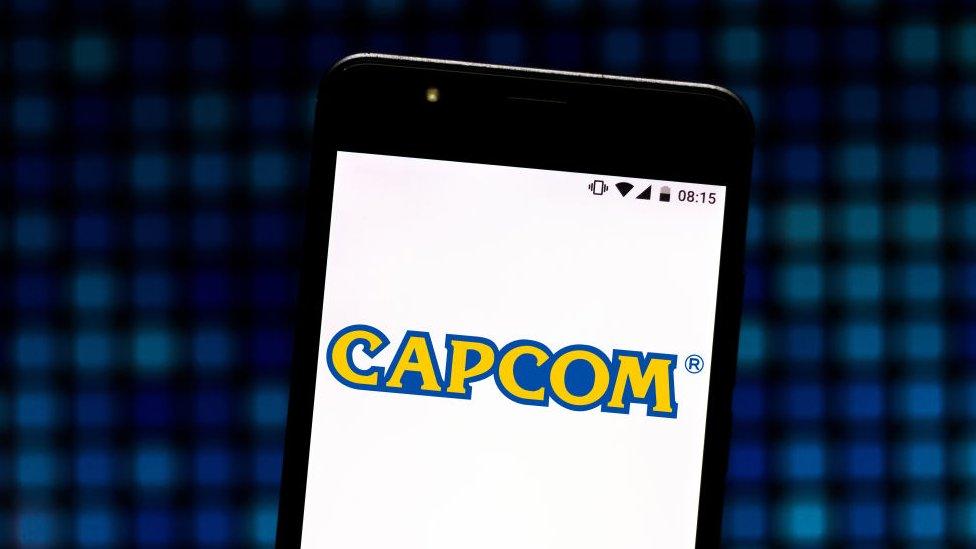
A photographer has launched legal action against gamemaker Capcom, accusing it of using dozens of her images without permission.
Judy Juracek claims Capcom used photographed patterns from a published book throughout its games - including Resident Evil and Devil My Cry.
In one example listed in court documents, she alleged the Resident Evil 4 logo uses the infringed assets.
She is seeking $12m (£8.5m) in damages from the Japanese games firm.
Capcom told gaming news site Polygon - which first reported on the legal case, external - that it was "aware of the lawsuit" but had no further comment.
'Visual research'
Ms Juracek's case claims that textures and images were taken from her 1996 book Surfaces, which is described as "visual research for artists, architects, and designers".
The book included a CD-Rom with digital images of the textures.
But the CD-Rom, the case alleges, was for inspiration and research only - any use of the images would have needed another licence, and that was made clear in the CD's copyright notice, her lawyers wrote. They say "many different parties" contacted Ms Juracek to obtain licences for commercial use.
Capcom did not - but used many images anyway, the filing claims.
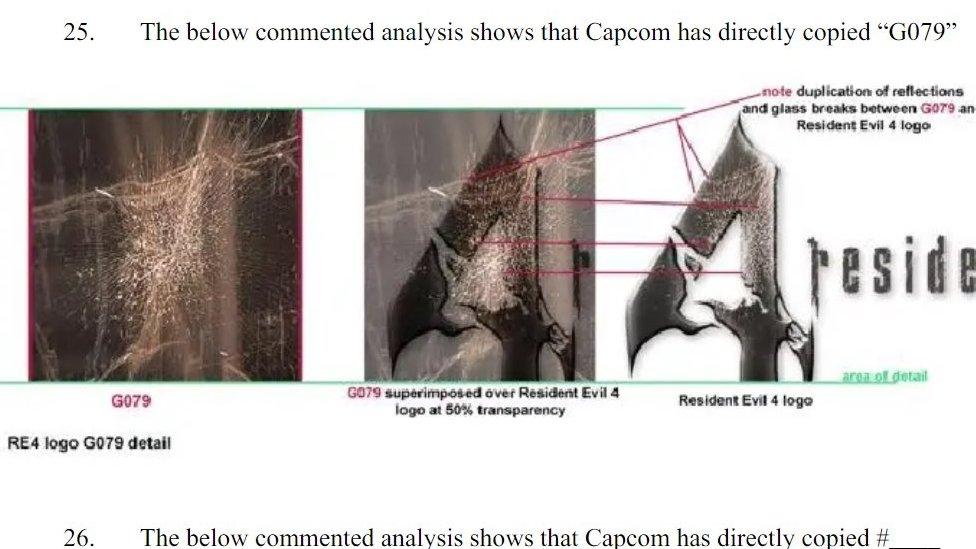
Court filings show a shattered glass texture in Ms Juracek's photo and one in the Resident Evil 4 logo
In one example, an image of shattered glass photographed in Italy is compared to the logo used for Resident Evil 4.
Ms Juracek argues: "The probability of an object hitting the same thickness and configuration of glass identically at any other location is impossible or exceptionally remote."
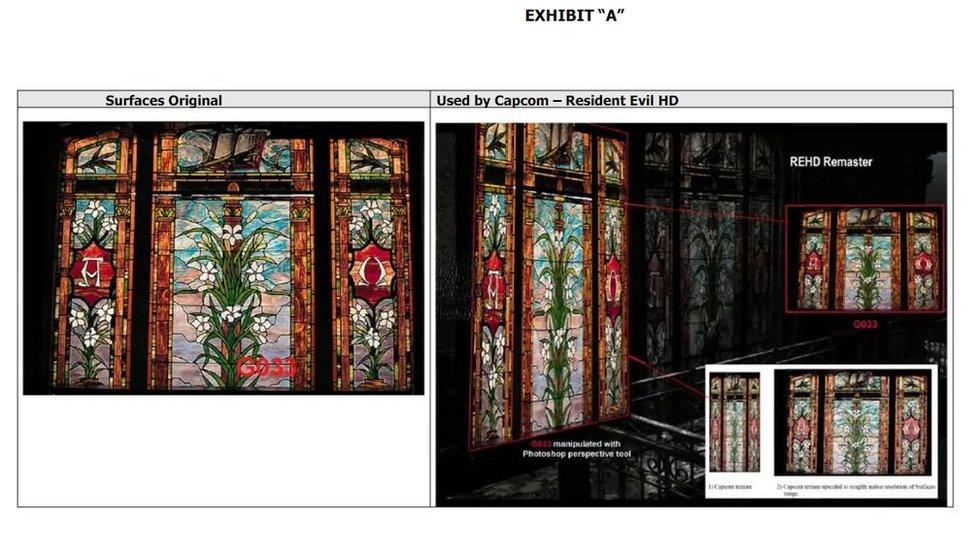
This stained glass window is one of the 80 examples in the legal filing
More than 100 pages of examples of further alleged infringements include stained glass windows used in a remaster of the original Resident Evil, wood, brick and carving reliefs used in Devil May Cry, and dozens more.
On top of the demand for financial compensation, Ms Juracek is demanding that Capcom "destroy each and every copy of all games" and other products using her images.
Hacked revelations
The court filing also reveals that the Capcom hack late last year was at least part of the reason Ms Juracek realised her content had allegedly been used without permission, despite some of the games being many years old.
The Capcom hack announced in November is believed to have compromised the personal information of up to 350,000 people, the company said at the time.
After the hacked materials were released publicly, they were found to include high-resolution artwork images, it is alleged.
The file names for "at least one" of the images from those hacked files are the same as those on Ms Juracek's Surfaces CD-Rom, the case alleges.
In all, she and her legal team identified 80 photographs they say were used without permission.
- Published16 November 2020
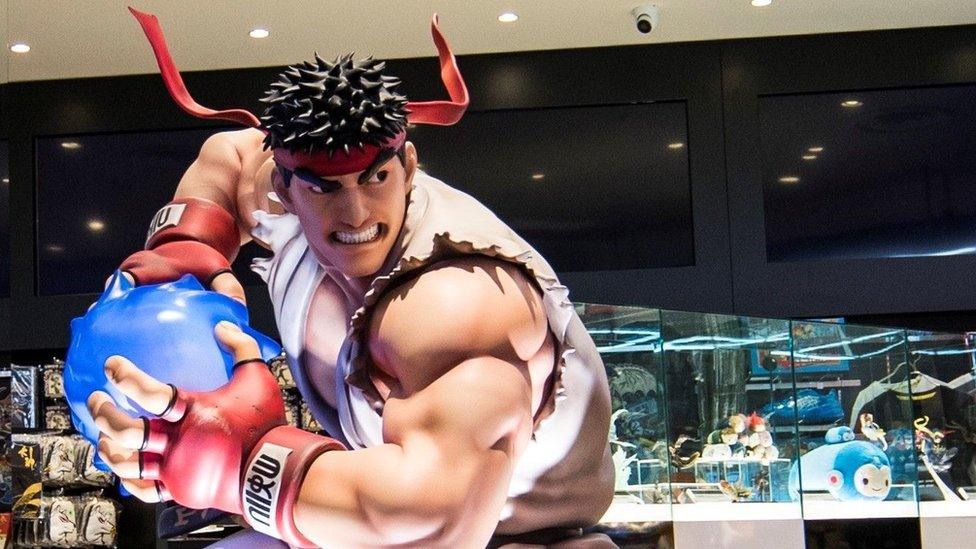
- Published6 November 2020
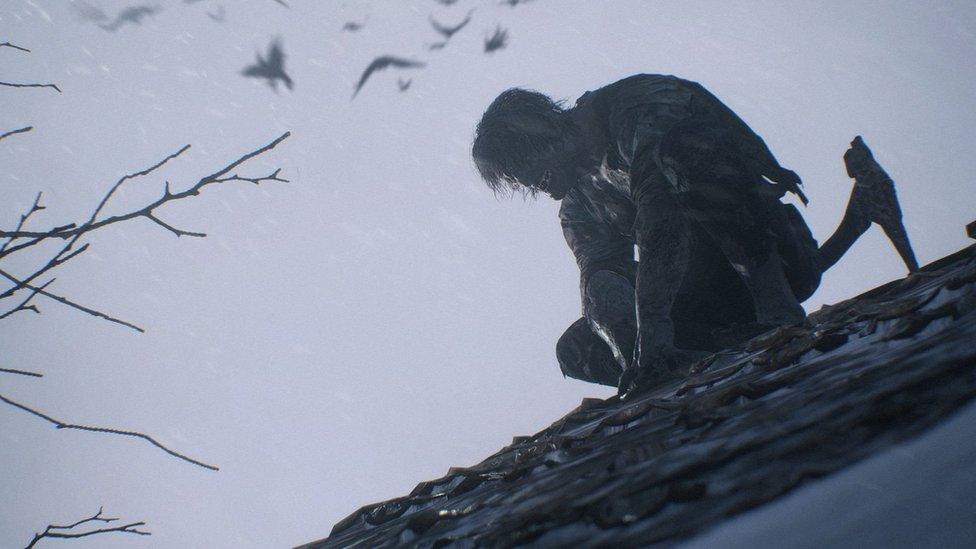
- Published16 September 2020

- Published11 November 2020
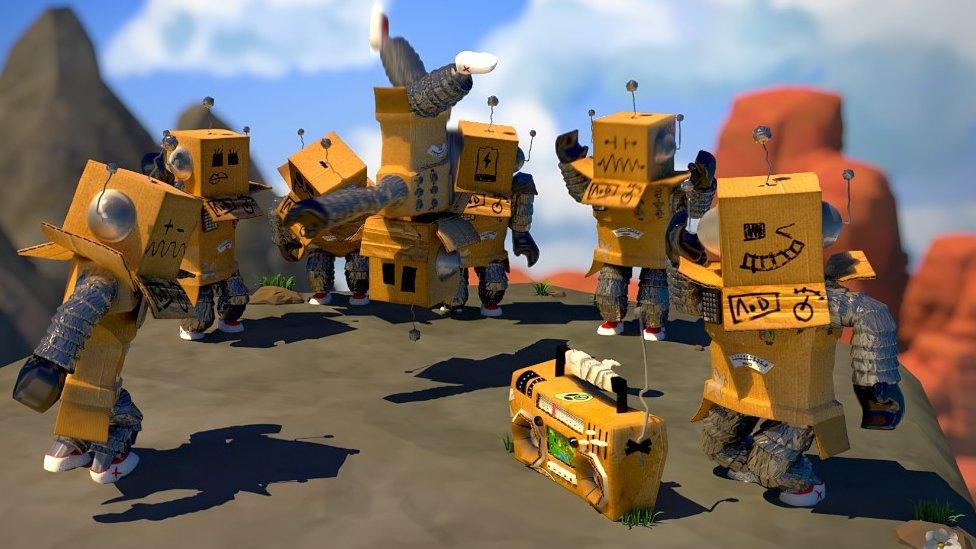
- Published18 May 2020
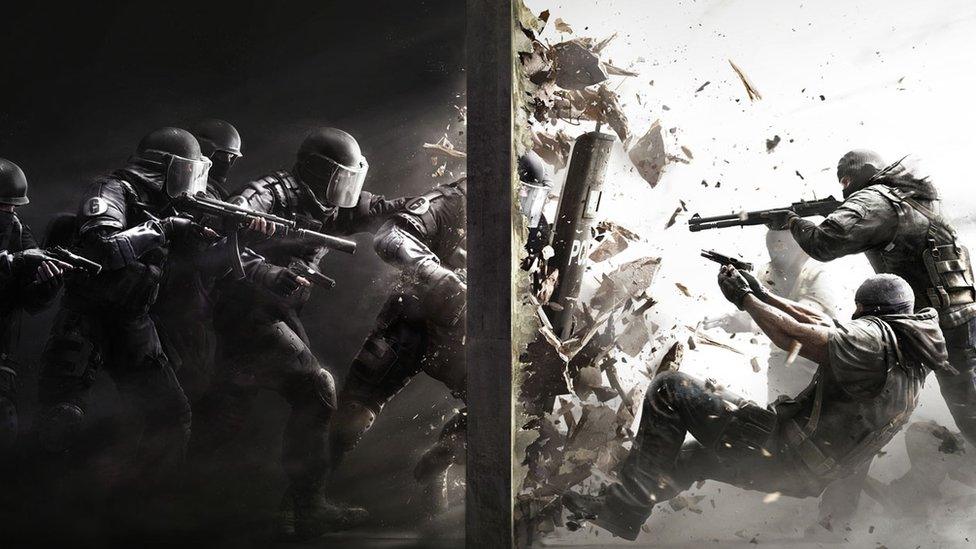
- Published30 March 2021
